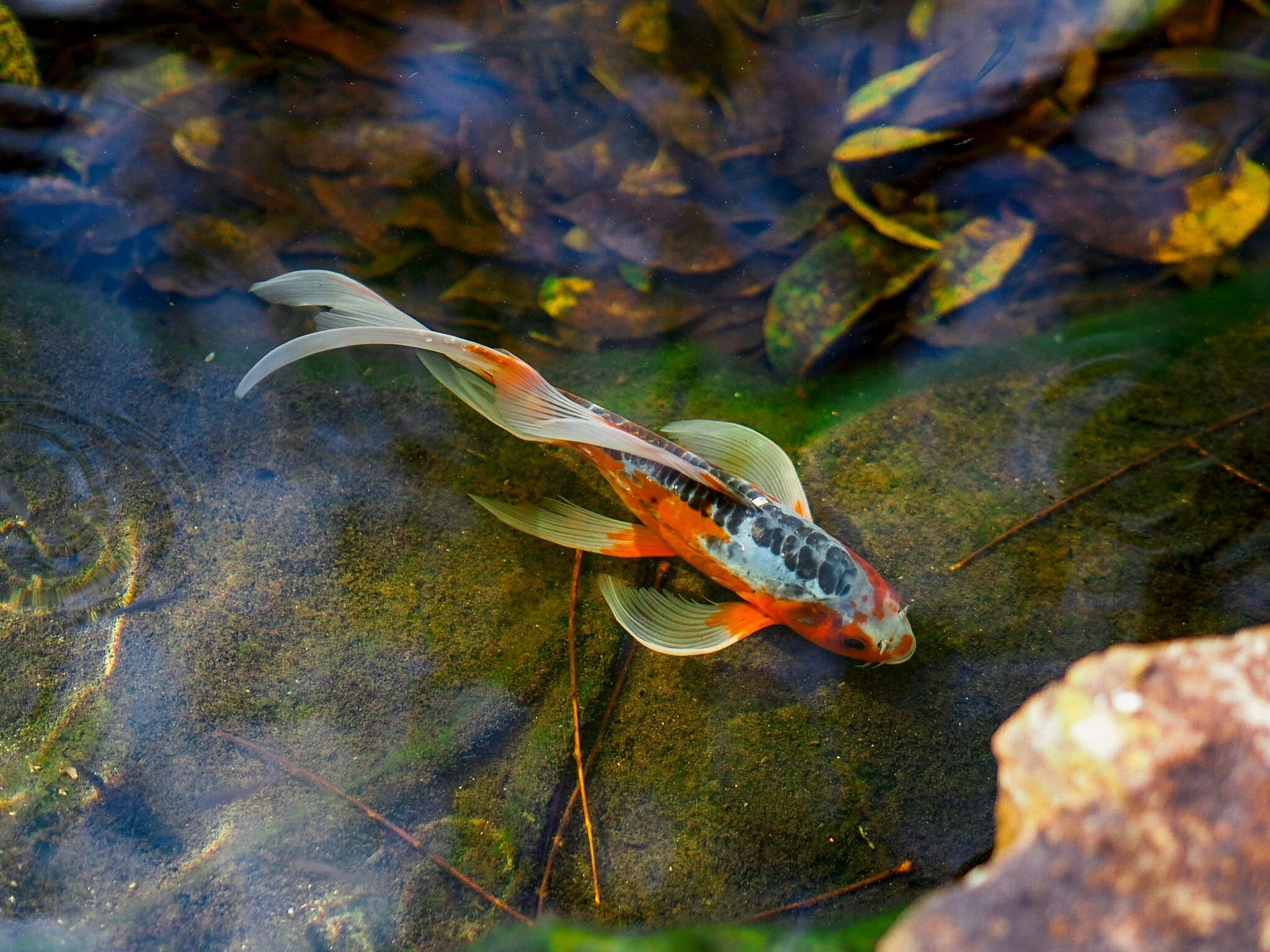Selecting Premium Koi Food: Key Factors for Nurturing Your Koi Fish
By PAGE Editor
Koi fish are beautiful and vibrant creatures that bring life to any garden pond. As a koi fish owner, one of the most important responsibilities is to provide the best nutrition for your koi. Choosing premium koi food is essential to keeping them healthy, strong, and vibrant. This article will help you understand how to select the right koi food and what factors to consider to ensure your koi thrive.
Understanding Koi Fish Nutrition
Koi fish, like any other pets, require a balanced diet to grow and stay healthy. A good diet helps them develop bright colours, strong bodies, and a robust immune system. The three main nutrients that koi need are proteins, fats, and carbohydrates. Additionally, vitamins and minerals are important to support their overall health.
1. Proteins
Proteins are the building blocks for growth and development in koi fish. High-quality koi food should have a good amount of protein. Young koi require more protein as they are still growing, while adult koi need less. Look for koi food with a protein content of 30-40% for young koi and 25-35% for adult koi.
2. Fats
Fats provide energy and help koi fish maintain healthy skin and scales. They are also important for developing vibrant colours. A premium koi food will typically contain 3-10% fat. It is important not to give koi too much fat, as it can cause health problems.
3. Carbohydrates
Carbohydrates are another source of energy for koi fish. However, koi cannot digest large amounts of carbohydrates well. Good koi food should contain carbohydrates in moderation, around 30-40%. Too many carbohydrates can cause digestive issues.
4. Vitamins and Minerals
Vitamins and minerals are necessary for koi fish to stay healthy. They help in building bones, boosting the immune system, and promoting overall well-being. When choosing premium koi food, make sure it contains vitamins like Vitamin C, A, D, and E, and minerals like calcium and phosphorus.
Types of Koi Food
There are different types of koi food available on the market. Knowing the types can help you choose the best option for your fish. The main types are floating pellets, sinking pellets, and special treats.
1. Floating Pellets
Floating pellets are the most common type of koi food. They float on the surface of the water, making it easy for you to observe your koi while they eat. This is useful for checking their health and activity levels. Floating pellets are great for young koi because they encourage them to come to the surface.
2. Sinking Pellets
Sinking pellets are best for shy or bottom-feeding koi. These pellets sink to the bottom of the pond, allowing the fish to eat in a more natural way. Sinking pellets are also suitable for colder seasons when koi tend to stay at the bottom of the pond.
3. Special Treats
Special treats can be added to the koi’s diet for variety and added nutrition. These can include fruits, vegetables, shrimp, and insects. While these should not replace regular koi food, they can provide additional vitamins and minerals and keep your koi happy.
Key Factors to Consider When Choosing Premium Koi Food
Selecting the best koi food involves considering several factors. Here are the key factors that you should look for:
1. Ingredients
Always check the ingredients on the koi food package. High-quality koi food will have a good balance of fish meal, shrimp meal, wheat germ, and other beneficial ingredients. Avoid foods with a lot of fillers like corn and wheat, which are not easily digestible for koi.
2. Protein Content
As mentioned earlier, protein is vital for koi growth and health. Ensure the food you choose has the right amount of protein for your koi’s age and size.
3. Seasonal Needs
Koi have different nutritional needs during different seasons. In the spring and summer, when water temperatures are warmer, koi are more active and require higher protein food. In autumn and winter, when the water is colder, their metabolism slows down. During this time, they need food with lower protein and higher wheat germ content for easier digestion.
4. Pellet Size
Pellet size is another important factor. Small koi will need smaller pellets, while larger koi can eat larger pellets. Feeding the right pellet size helps prevent choking and ensures proper digestion.
5. Water Quality
Koi food can affect water quality. Overfeeding or feeding low-quality food can cause excess waste, leading to poor water quality and algae growth. It is important to feed the right amount and choose high-quality food that does not cloud the water.
The Role of Teichpflege (Water Supplements)
Apart from selecting the right koi food, maintaining good water quality is crucial for koi health. This is where Teichpflege, or water supplements, come in. Teichpflege refers to various products that help keep the pond water clean and healthy. These may include beneficial bacteria, enzymes, and other water conditioners that help break down fish waste, reduce harmful bacteria, and promote a balanced ecosystem in the pond.
Using Teichpflege along with a good diet ensures that your koi have a healthy environment to thrive in. Poor water quality can lead to stress and disease, which is why it’s important to use both quality koi food and water supplements to keep your pond in top condition.
How to Feed Koi Fish Properly
Feeding koi fish is not just about choosing the right food but also knowing how to feed them properly. Here are some tips for feeding your koi:
1. Feed Small Amounts Several Times a Day
Koi fish do not have a stomach like humans do; they have a straight digestive tract. This means they need to be fed small amounts several times a day rather than one big meal.
2. Do Not Overfeed
Overfeeding is a common mistake that can lead to water quality issues and health problems for koi. Feed your koi only what they can consume in 5-10 minutes. Remove any uneaten food from the pond to prevent it from decomposing and affecting water quality.
3. Watch Their Behaviour
While feeding your koi, observe their behaviour. Healthy koi are active and will swim quickly to the food. If you notice that your koi are not interested in eating or are moving slowly, this could indicate a health issue or water quality problem.
Special Considerations for Koi Health
Koi fish are generally hardy, but they can still fall ill if not cared for properly. Poor diet and water quality are the main culprits. Here are some special considerations for koi health:
1. Regular Pond Maintenance
Proper pond maintenance is crucial for ensuring a healthy and vibrant aquatic environment. Regularly checking the water quality is one of the most important steps. Testing for pH, ammonia, and nitrate levels can help you detect any imbalances early on. It is also essential to remove debris such as fallen leaves, algae, and uneaten fish food, as these can break down and pollute the water.
Performing partial water changes helps in maintaining a balanced ecosystem by reducing toxins and replenishing essential minerals. Using Teichpflege products can significantly enhance your pond maintenance routine. These products are specifically designed to help maintain water quality, control algae growth, and reduce harmful bacteria, promoting a healthier environment for your fish and plants.
2. Check for Signs of Illness
Regularly check your koi for signs of illness such as loss of appetite, unusual swimming patterns, redness, or sores on the body. If you notice any of these signs, consult a fish veterinarian or a koi specialist.
3. Quarantine New Fish
Before adding new koi to your pond, always quarantine them for at least two weeks. This helps prevent the introduction of diseases to your existing koi population.
Conclusion
Selecting premium koi food is an important part of koi care. By understanding koi nutrition, choosing the right food, and using Teichpflege to maintain water quality, you can ensure that your koi fish live a long, healthy, and colourful life. Remember to observe their eating habits, provide a balanced diet, and maintain a clean pond environment. With the right care and attention, your koi will thrive and become the beautiful centerpiece of your garden pond.
HOW DO YOU FEEL ABOUT FASHION?
COMMENT OR TAKE OUR PAGE READER SURVEY
Featured









Topicals makes its first-ever collaboration debut with Billionaire Boys Club, reimagining its cult-favorite, Sephora No. 1 Faded Under Eye Masks in a limited-edition space-blue design that merges streetwear culture, community, and clinically backed skincare.